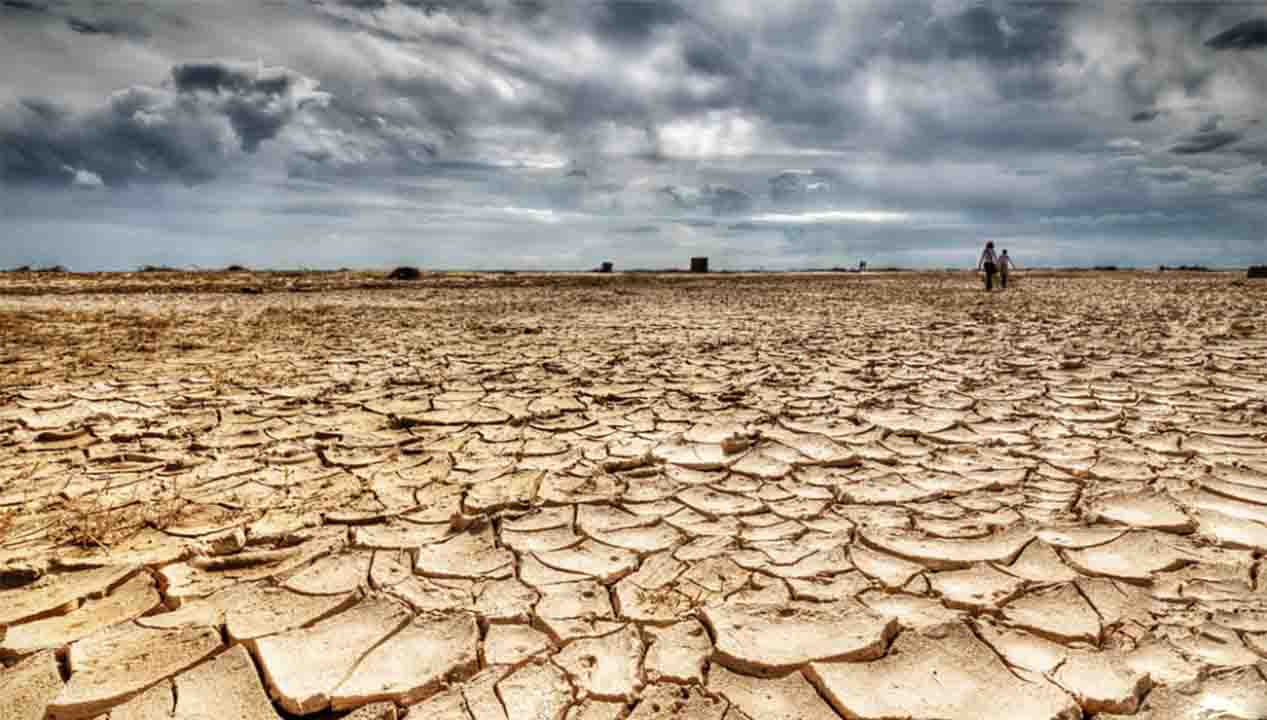Water is scarce. It is a precious commodity and life without water is unimaginable. Yet, climate change, conflicts, and poor water management techniques are worsening the scarcity. Some 2.2 billion people, more than 25 percent of the total global population, are living today, without access to safe water.
Conflicts go hand in hand with water scarcity and the deterioration of sanitation and hygiene. Lack of access to water is leading the world into further conflicts. The next wars will not be centered around global oil reserves but to control the diminishing water resources of the world.
Read more: Water is the New Gold: An Emerging Source of Global Conflicts
With increasing global stress on rivers, lakes, aquifers, wetlands, and water reservoirs, for the last eight years now, the UN has been warning of conflicts and civilizational threats. Around 74 percent of natural disasters between 2001 and 2018 were water-related, including droughts and floods.
A 2018 UN report said, more than 5 billion people could suffer from water scarcity by 2050 due to climate change, increased water demand, and polluted supplies.
The 2021 World Economic Forum’s Global Risk Report (GRR) has listed water crises among the top-five risks in terms of impact. Post-conflict restoration, management, and protection of water resources carry consequences for short-term stability, longer-term sustainable development, and successful post-conflict peacebuilding.
Read more: Pakistan’s water crisis: expensive and deadly
In response to the growing crisis, March 22nd was declared as the UN World Water Day. Water and sanitation for all by 2030 were set as a target in the UN Sustainable Development Goals.
Lack of catchment facilities
Climate change is disrupting weather patterns, leading to extreme weather events, unpredictable water availability, exacerbating water scarcity, and contaminating water supplies, a UNICEF report underlined.
On a visit to Djibouti in 2017 on the way back from a humanitarian delegation to Yemen, I witnessed precious water from abundant rains flowing from the mountains directly to the Red Sea. Building a catchment facility for this rainwater was not possible due to a lack of resources.
Read more: Pakistan’s Kalabagh Dam and a series of unfortunate events
In a 2005 visit to drought-stricken Somaliland, in an hour of rain, billions of gallons of water flooded the streets but could not be harvested. In 2020, Sudan witnessed heavy rains that flooded many governorates in the country, affecting millions due to limited catchment facilities.
Rising global temperatures and growing carbon emissions are intensifying the global humanitarian crisis. While building water projects is an important short-term objective, finding a solution to climate change and improving water harvesting techniques remains imperative.
Read more: Op-ed: Climate change cannot be denied
Efforts to provide clean water
Access to clean water and sanitation is a human right. Many voluntary organizations are striving to make this goal achievable. Islamic Relief has undertaken several projects under its ‘Water for Life’ program.
Besides providing food, shelter, and other vital support to affected populations, Islamic Relief has been providing access to water facilities and other vital services in many countries. Through these programs, some 998,000 people worldwide received healthcare, and 301,000 gained access to clean water, improved sanitation, and hygiene facilities.
Read more: Clean water is a key factor for economic growth: World Bank
Islamic Relief Canada undertook several Water, Sanitation, and Hygiene (WASH) Projects in 2019. These included the construction and rehabilitation of water points and semi-permanent toilets in Cox’s Bazar in Bangladesh for Rohingya Refugees.
Furthermore, in Kenya solar-powered wells were used to rehabilitate strategic water points, in Malawi farmers were provided with sustainable irrigation systems, fish ponds, livestock, and farm inputs, while in Sudan implemented projects ventured to increase access to and utilization of improved and sustainable water facilities, reducing waterborne diseases.
Read more: Punjab Saaf Pani Project fails to provide a single drop of clean water despite spending Rs 400…
A need for newer approaches
Islamic Relief also believes, newer and innovative approaches are required to overcome the looming crisis. Keeping in view, Islamic Relief adopted gravity-driven water sources built-in Kashmir and under the CHAF project, Islamic Relief embarked on providing the Emergency Water Treatment Kits in Ethiopia.
Under a multi-pronged approach, Islamic Relief undertook its TACVA (Transformation and Adaptation against Climate Variability Affected-Areas) project, in Pakistan, to help farmers harness and manage rainwater. The program has enabled the farmers in this arid region to cultivate lands with drought-tolerant crops.
Read more: How is Nestle Pakistan Empowering Dairy Farmers?
While more efforts need to be put into rainwater harvesting schemes that strengthen communities to overcome these climate change-related shocks, millions in already invested funds into water schemes have resulted in dysfunctional projects due to a lack of community ownership and involvement.
Empowering communities with the training and knowledge to maintain water infrastructure is necessary for long-term sustainable sources of water.
Despite all these efforts, water for all by 2030 remains a pipe dream. Much more needs to be done.
Read more: Climate Change and Mismanagement of water resources in Agriculture sector
Dr. Hany El-Banna founded Islamic Relief in 1984, one of the largest humanitarian aid organizations globally, and traveled to 80 of the world’s poorest and most vulnerable countries. He is also the founder of The Humanitarian Forum which is now called The World Humanitarian Action Forum (WHAF). He also holds an MBBCh, MD and an Honorary Doctorate (DUniv). He has been awarded the Officer of the Most Excellent Order of the British Empire (OBE) for his humanitarian service.
The views expressed in the article are the author’s own and do not necessarily reflect the editorial policy of Global Village Space.














